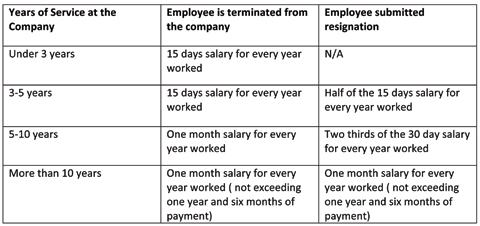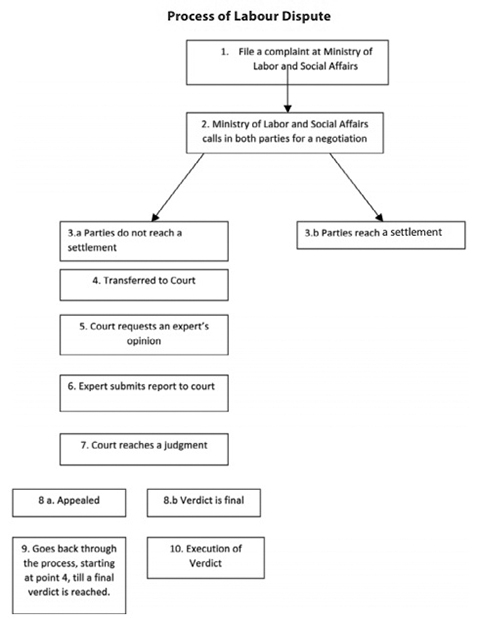
There are different terms used in law and by the general public to refer to Termination Indemnity, some of our readers use ŌĆ£End of service benefitsŌĆØ and ŌĆ£termination indemnityŌĆØ interchangeably, and because I want to make this as simple as possible I will not get into the specifics of each term and instead just use ŌĆ£Termination indemnityŌĆØ.
I decided today to write about termination indemnity as I have received multiple questions on the matter. I put together the most frequently asked questions, in hopes that my readers could benefit from reading the answers.
Everyone working in the private sector should be considered for termination indemnity, regardless of their nationality. Unfortunately, from experience I can tell you that some companies are very sneaky when it comes to paying termination indemnity for both Kuwaitis and non-Kuwaitis.
I know of big multi-million companies that unlawfully claim to their Kuwaiti employees that they are not entitled to termination indemnity because the company is paying their social security. That is not true. Social security is a monthly payment that companies and employees each pay a percentage of every month. Companies are legally required to pay a certain percentage of the full social security amount. If the company decides to pay the full amount that is their choice, so unless there is an agreement that the company will pay on behalf of the Kuwaiti employee and therefore deduct those payments from the termination indemnity, those companies need to pay up.
2) If I terminated my contract, do I still deserve termination indemnity for the years that I have worked?
The answer to this question depends on the type of contract as well as how many years of service you have with the company. If you end a fixed term contract you could possibly owe the company money and therefore that will be deducted from your final termination indemnity. With that said, after three years of service your contract shall be considered legally as an open term contract, even if your contract is fixed term.
If you have less than three years of service, you donŌĆÖt deserve termination indemnity regardless if your contract has a fixed term or not. As for employees that have more than three years of service, please read the answer to question 3.
3) How do I calculate my termination indemnity?
Although usually lawyers donŌĆÖt do the calculations and allow accountants the honor of crunching in the numbers, I think the formula to calculate your termination indemnity can be mastered by anyone. I will try my best to explain it in the simplest of forms in a table that is easy to read. This is for employees that get paid on a monthly basis, which from experience is the most common method of payment in Kuwait.
 You can calculate your daily salary if you get paid monthly by dividing your monthly salary by 26 days and not 30 days because according to the law there are 26 working days within a month, even if you work less.
You can calculate your daily salary if you get paid monthly by dividing your monthly salary by 26 days and not 30 days because according to the law there are 26 working days within a month, even if you work less.
4) What legal options do I have if the company is not paying my termination indemnity? How can I legally force them to pay and how long does it take?
Well my advice is always to get a lawyer at this stage, from experience companies and/ or responsible governmental entities are more likely to respond when the employee has a legal representative.
Unfortunately, companies know that the legal process can cost time and money to the employee and therefore are extremely reluctant about paying what is due to their previous employees. From experience I have seen all types of companies try to get out of paying termination indemnity and unfortunately a lot of companies get away with it. I hope that responsible institutions have more strict laws/bylaws regarding the payment of termination indemnity by companies, causing awareness and enforcement.
Once you get a lawyer, you should ask the lawyer to always start with a negotiation. On average a case will take eight months to one year at court, that is a lot of time to wait, especially for those leaving the country or for those employees that are not from Kuwait. Therefore it is always best to start with a negotiation, that is what I always do for my client, saving both parties time and legal fees. If the company refuses to pay, then the case is taken to the Ministry of Social Affairs where an official legal process starts. I put together a flow chart to explain the process.
By Attorney Fajer Ahmed




